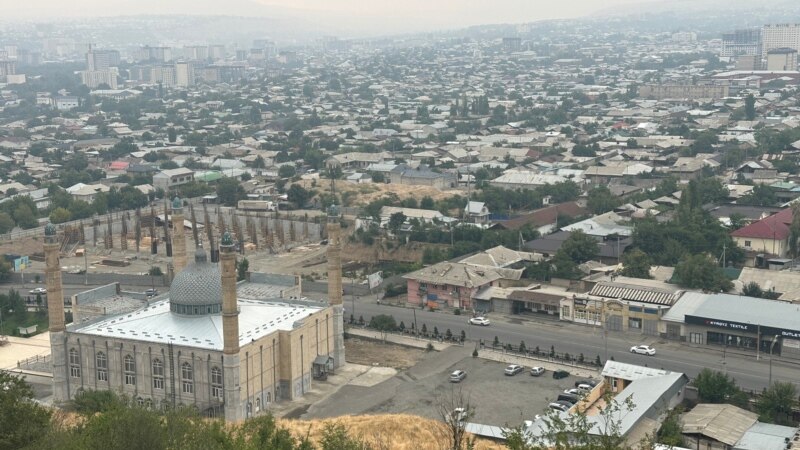Kyrgyzstan has previously postponed repayments on its upcoming debt payments to China, raising concerns about the Central Asian country’s financial dependence on its increasingly powerful eastern neighbor.
The total debt accumulated by the country since independence in 1991 is estimated at approximately $6.2 billion, or 45% of GDP. The ratio is lower than debt ratios in some developed countries, but it is a problem for a largely agricultural economy that has struggled since a change of government in 2020.
About $1.7 billion of that is owed to the Export-Import Bank of China, which agreed to defer repayments of $32 million in 2021 in the face of the COVID-19 pandemic.
But repayments are now required in addition to what would normally be required, and China rejected Bishkek’s suggestions for a further deferral or alternative repayment plan.
Kyrgyzstan Cabinet Chairman Akilbek Japarov said at a government meeting in Osh, Kyrgyzstan’s second largest city, on February 2, “We have reached the peak of foreign debt repayments.”
To repay debt, Kyrgyzstan’s budget will allocate $400 million in 2024, $430 million in 2025 and $390 million in 2026, Japarov said.
“We are all in the same boat in Kyrgyzstan, so we need everyone’s efforts and contributions. We have to work as a team,” Japarov said at the meeting.
Loan to finance upgrades, renovations
Kyrgyzstan government data shows Chinese loans have financed major infrastructure projects as part of Beijing’s global Belt and Road Initiative. These include the modernization of the capital’s central heating station, the reconstruction of the north-south highway and the transformation of the national grid.
The loans have a repayment period of 20 years and an annual interest rate of 2%, the data shows.
Faced with a shrinking economy, the Kyrgyz government has come up with a variety of innovative ideas to manage debt, including calling in November 2020 for private citizens to contribute to a special bank account dedicated to repaying debt.
Government data shows that as of August 2023, the account had accumulated $358,000.
In 2021, the government considered handing over control of some lucrative mining assets to China as a form of debt repayment, but backed off due to concerns about public outcry.
China reportedly rejected the idea anyway but agreed to defer the $32 million.
China rejects alternative plan
As the 2024 loan repayment deadline approaches, public debate is once again focused on how to ease the repayment burden.
Kyrgyzstan officials proposed to China last year that it swap some of its debt for green initiatives; Kyrgyzstan would not repay Chinese loans and instead use the funds to reduce carbon dioxide emissions or invest in renewable energy projects.
China reportedly rejected the proposals.
At a press conference in March 2023, a reporter asked Chinese Ambassador to Kyrgyzstan Du Dewen about the possibility of China restructuring Kyrgyzstan’s loans.
“We are not the only ones making decisions,” the ambassador replied. “China must abide by international norms. All these issues can be discussed in a spirit of friendship and mutually beneficial cooperation to find some form of solution.”
The lack of progress on the restructuring has stoked public concerns about what China will do if Kyrgyzstan fails to repay its debts.
In June 2022, Japarov warned that if Kyrgyzstan defaulted, the Export-Import Bank of China might seize control of some key assets such as the Bishkek central heating station and the North-South Highway.
A China expert in Bishkek, who requested anonymity in order to speak freely about China, told VOA that the debt repayment issue has become a politically sensitive issue.
“The problem is we don’t know what China’s long-term strategic goals are [for Central Asia] Yes,” the expert said. “China expressed its hope for peace in the region and stressed the importance of strategic cooperation [with Central Asian countries], but many ordinary people do not trust Beijing. “
The expert added that anti-China sentiment has been rising in Kyrgyzstan. In 2019 and 2020, Kyrgyzstan saw a series of protests against Chinese investments in Kyrgyzstan.
Experts in Bishkek said Kyrgyzstan’s financial dependence on China has prompted the country’s government to support Chinese diplomacy in international affairs.
A press release issued by the Chinese government in May 2023 stated that Kyrgyzstan “firmly supports China’s firm stance on issues involving core interests such as Taiwan, Xinjiang, and Hong Kong, and supports China’s global security initiatives and global development initiatives.”
“We don’t need to worry”
Public sensitivity about Kyrgyzstan’s growing financial dependence on China prompted Kyrgyz officials to take action.
In July 2022, under pressure from parliament, the cabinet adopted a debt ceiling, stipulating that the government must avoid a situation where 45% of the country’s external debt is owed to a single creditor.
In February this year, Kyrgyzstan MP Balbak Tulobayev called on the government to use Kyrgyzstan’s gold reserves to fully repay foreign debts, including loans from China. The National Bank of Kyrgyzstan, which oversees gold reserves, considers the suggestion unrealistic.
Kyrgyz President Sadyr Japarov tried to reassure the public in an April 13 interview with state news agency Kabar.
“Let’s forget about foreign debt,” he said. “Even if our foreign debt increases to $10-15 billion, we don’t need to worry.”
Sadr Japarov added: “As long as our country can achieve peace and stability, we will reciprocate [loans] No difficulty. “
Follow us on Google news ,Twitter , and Join Whatsapp Group of thelocalreport.in
